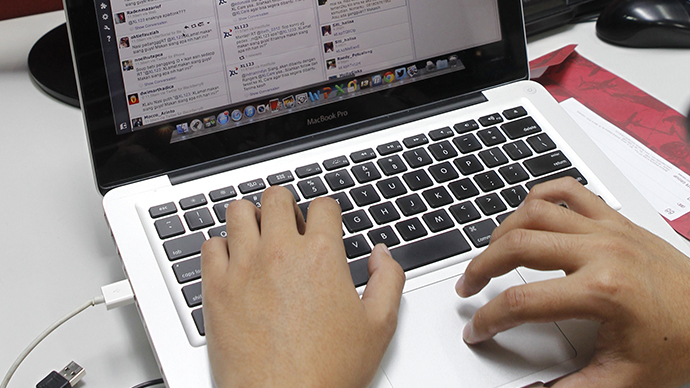‘It’s important to preserve the Internet as an open platform for free expression’

The Internet is a place for communications, free expression and an exchange of information without a heavy-handed corporate thumb and that must be preserved, Internet Slowdown activist Casey Rae said.
On September 10, activists with the support of Mozilla, Reddit, Netflix, Foursquare, Vimeo and Wordpress held the ‘Internet Slowdown’ protest against a US plan that would segregate Internet surfing speeds and abolish the principle of “net neutrality.” Under the rules proposed by the US Federal Communications Commission (FCC), big telecom companies like Verizon, Comcast and AT&T would be able to create a two-tiered Internet, with “fast lanes" for those who can afford it and “slow lanes” for the rest. The purpose of the Internet Slowdown Day was to illustrate how losing net neutrality would harm websites and other online services.
RT:There are fast lanes in real life, which you need to pay for. Why not let the telecoms profit from premium traffic online?
CR: Think of it like phone lines: if you pick up the phone to call your favorite pizza place, the operator doesn’t come out and say “Please, hold on while we prioritize calls for Domino’s.” That’s the way the Internet has worked all this entire time. It has only been recently that the Internet service providers like Comcast and Verizon have attempted to charge people who put things on the Internet – great songs, great movies, great ideas, and great blog posts – an extra fee for the guarantee of the delivery of that content. So this is what we are trying to protect: the Internet as a place for communications, free expression and an exchange of information without a heavy-handed corporate thumb.
RT:Is there limit to how big it could be? Someone should pay for it and it is mostly businesses that are in charge.
CR: Customers are already able and are charged for higher speed and there is nothing wrong with that, provided the companies are actually living up to the speeds advertised. You pay for the bandwidth you use, that’s fine. The issue is that the Internet service providers want “extra money” by squeezing folks who innovate and create online, charging them premium prices to have the content delivered to the end user - somebody on the laptop computer or mobile device. That would create a very unlevel playing field, and anybody from the creative industry knows what that looks like because the old version, it was very difficult to reach audiences because it was just time- and labor-intensive. The Internet has allowed so many of us to creatively express ourselves in the ways that we couldn’t have dreamed about 15 years ago. It is important to keep in mind this is the way the Internet was built and this is the way it works. We are just asking to make sure that it stays that way.
RT:So you hope that the US government will be the first to stand up and say that such measures can’t be allowed? Will it?
CR: That is what we are telling them. The issue is, and it is bipartisan, meaning that I have watched the State of the Union Address, watched folks in our Congress on both sides of the aisle, twitting. Where do they think Twitter comes from? It comes from an open platform where you can build something like Twitter and you can get your messages out of that there to your constituents. So absolutely in America it is of bedrock importance that we preserve the Internet as an open platform for free expression.
The statements, views and opinions expressed in this column are solely those of the author and do not necessarily represent those of RT.
The statements, views and opinions expressed in this column are solely those of the author and do not necessarily represent those of RT.












